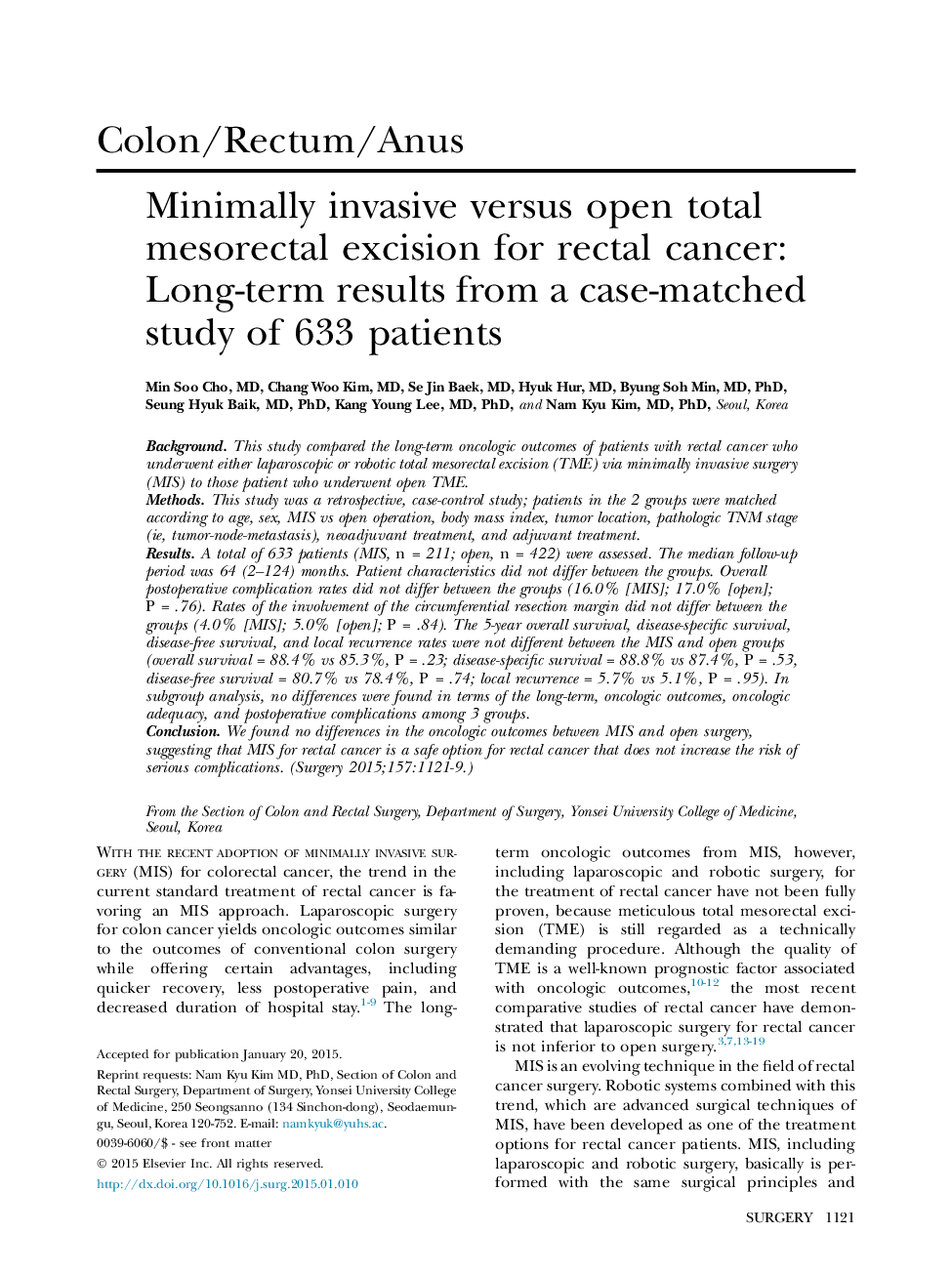| Article ID | Journal | Published Year | Pages | File Type |
|---|---|---|---|---|
| 6255160 | Surgery | 2015 | 9 Pages |
BackgroundThis study compared the long-term oncologic outcomes of patients with rectal cancer who underwent either laparoscopic or robotic total mesorectal excision (TME) via minimally invasive surgery (MIS) to those patient who underwent open TME.MethodsThis study was a retrospective, case-control study; patients in the 2 groups were matched according to age, sex, MIS vs open operation, body mass index, tumor location, pathologic TNM stage (ie, tumor-node-metastasis), neoadjuvant treatment, and adjuvant treatment.ResultsA total of 633 patients (MIS, n = 211; open, n = 422) were assessed. The median follow-up period was 64 (2-124) months. Patient characteristics did not differ between the groups. Overall postoperative complication rates did not differ between the groups (16.0% [MIS]; 17.0% [open]; P = .76). Rates of the involvement of the circumferential resection margin did not differ between the groups (4.0% [MIS]; 5.0% [open]; P = .84). The 5-year overall survival, disease-specific survival, disease-free survival, and local recurrence rates were not different between the MIS and open groups (overall survival = 88.4% vs 85.3%, P = .23; disease-specific survival = 88.8% vs 87.4%, P = .53, disease-free survival = 80.7% vs 78.4%, P = .74; local recurrence = 5.7% vs 5.1%, P = .95). In subgroup analysis, no differences were found in terms of the long-term, oncologic outcomes, oncologic adequacy, and postoperative complications among 3 groups.ConclusionWe found no differences in the oncologic outcomes between MIS and open surgery, suggesting that MIS for rectal cancer is a safe option for rectal cancer that does not increase the risk of serious complications.
